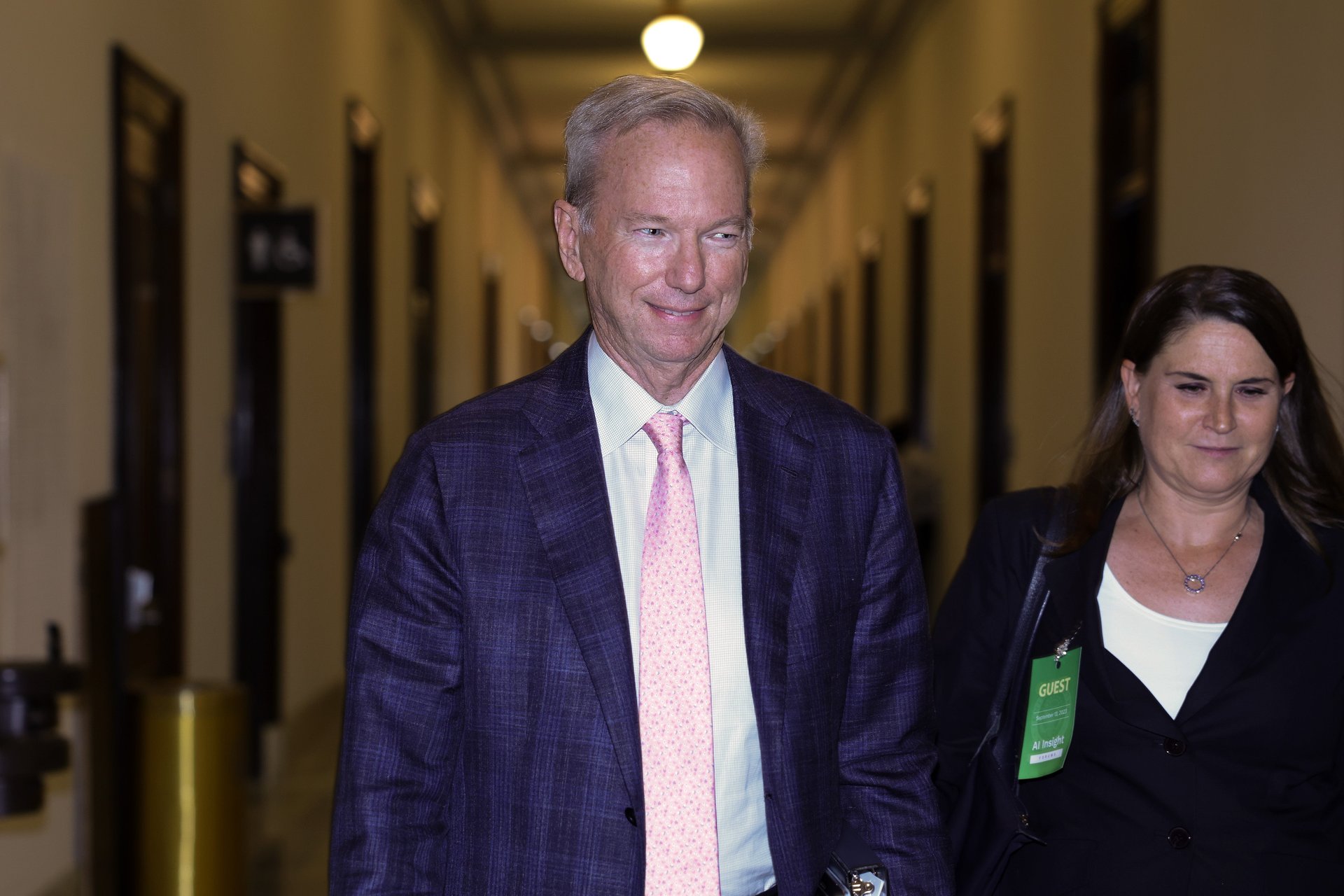A former Google CEO invested in China's AI industry while warning it was a threat to the U.S.
Eric Schmidt's private foundation invested $17 million in a fund that feeds Chinese AI companies, a new report found

Despite publicly warning that China’s AI efforts could be a strategic threat to the U.S., former Google CEO Eric Schmidt pursued connections with and invested in the country’s AI industry, according to a new report.
Suggested Reading
The nonprofit Tech Transparency Project found that in 2019, Schmidt’s private foundation invested $17 million into a feeder fund called Gaoling Feeder, which funds Hillhouse Capital, a Chinese private equity group that has Chinese AI companies in its portfolio.
Related Content
In November of that same year, Schmidt, who was serving as chairman of the National Security Commission on Artificial Intelligence (NSCAI), wrote in an interim report that “developments in AI cannot be separated from the emerging strategic competition with China and developments in the broader geopolitical landscape.”
“We are concerned that America’s role as the world’s leading innovator is threatened,” Schmidt wrote with NSCAI vice chairman Robert Work. “We are concerned that strategic competitors and non-state actors will employ AI to threaten Americans, our allies, and our values.”
China was using AI “to advance an autocratic agenda and to commit human rights violations,” the two wrote, adding that the country’s deployment of the technology set “an example that other authoritarian regimes will be quick to adopt and that will be increasingly difficult to counteract.”
The Tech Transparency Project, citing emails obtained through a Freedom of Information Act request, reports that Schmidt also set up meetings with AI leaders in China. An employee at Schmidt Futures, the billionaire’s private venture fund, asked NSCAI employees in September 2019 who Schmidt should meet with during a trip to China to discuss AI “in a personal capacity,” the emails show.
Schmidt eventually met with leaders in China’s AI industry, according to the Tech Transparency Project, including an investor who was later accused by U.S. lawmakers of backing AI companies developing technology used for human rights abuses and by China’s military.
Neither Schmidt or Schmidt Futures immediately responded to a request for comment Thursday.
A Hillhouse spokesperson said Friday that there aren’t any Chinese AI companies in the portfolio in question. “The Gaoling feeder feeds into a global public equities portfolio HHLR,” the spokesperson said, referring to the fund into which Gaoling fed. “There are no Chinese AI companies in this portfolio at all.”
Asked if there were any Chinese AI companies in the portfolio at the time of Schmidt’s investments, the Hillhouse spokesperson initially didn’t answer. They later said: “HHLR has never had any exposure to any pure AI companies at all in its portfolio.”
In 2021, Schmidt and Work again warned about China’s use of AI in an NSCAI letter. “China’s domestic use of AI is a chilling precedent for anyone around the world who cherishes individual liberty,” they wrote. “Its employment of AI as a tool of repression and surveillance—at home and, increasingly, abroad—is a powerful counterpoint to how we believe AI should be used.”
Despite these and other warnings against China’s AI developments, Schmidt’s investments in Chinese companies developing AI tools was not entirely unknown. In September, Bloomberg reported that the Schmidt Family Foundation had invested in Tencent Holdings, which launched an AI model last September, and Alibaba Group, which released two AI models last August. A spokesperson for Schmidt told Bloomberg that neither Schmidt nor his foundation made the investment decisions, which the spokesperson said were made by a third-party manager.